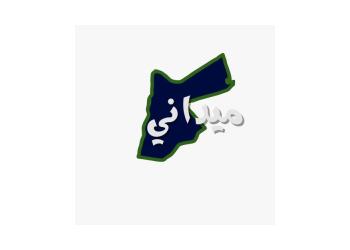This Week In Jordan (podcast)

radio albalad · This Week In Jordan
Hello and welcome to This Week in Jordan, a weekly podcast from Radio al Balad and Amman Net, one of the premier radio stations out of Amman, Jordan. I’m Julia Thomason, and I am your new host. I am honored to be replacing the former host and creator of this podcast Zach Bampton. If you’re new to our podcast, each week I will be summarizing the top news stories from Jordan, in English. This week's topics include: the killing of 4 smugglers at the northern Jordanian border with Syria and the increasing instability in southern Syria, the Jordanian Ministry of Health’s plan to address the Monkeypox disease, and the announcement from King Abdullah of the restrictions placed on his half-brother, Prince Hamza.
I’m really excited for this podcast to be back, so let's get started with episode 10 of This Week in Jordan.
---
A military source within the Jordanian Armed Forces confirmed that four people were killed and numerous others were injured, but fled back into Syria, in an operation on Sunday morning along the northern border of Jordan. The Border Patrol Forces had been monitoring a group of armed smugglers attempting to illegally cross the border from Syria into Jordan. After extensive searches of the area, border forces located 637,000 Captagon pills, 181 bags of cannabis, 39,600 Tramadol pills, and multiple Kalashnikov weapons that were then transferred to the appropriate authorities.
The source reiterated that the Jordanian Armed Forces and Border Control will do whatever is necessary to protect the borders and national security of Jordan against any infiltration or smuggling efforts. It was also noted that this was not the first thwarted smuggling attempt this year at the Jordanian borders, as the armed forces have successfully prevented the entry of narcotics and other prohibited substances into Jordanian territory on multiple occasions this year.
---
The confrontation at Jordan’s northern border came in the wake of the increased instability of Southern Syria, and therefore the northern border of Jordan. The war in Ukraine prompted some of the Russian forces stationed in southern Syria to withdraw, and they have been replaced by Iranian militias. King Abdullah recently stated his continued concern for the possibility of escalation at the border as Iranian and Shiite militias take control of large areas of Dara’a, a southern city in Syria that previous served as trade center between Syria and Jordan. The loss of control in this area and the resulting loss of trade has had serious economic implications in Jordan.
Jordanian Military experts are concerned about the possibility of future clashes to foster chaos and new opportunities for the smuggling of arms across the borders, as power shifts in southern Syria. Fear is also mounting about the prospect of conflict with Iran, Israel, and America, particularly the threat that their deployment of drones and ballistic missiles would pose to Jordanian national security. It remains unclear what will transpire in southern Syria post-Russian involvement, but according to researcher and strategic analyst Amer al-Sabayla, Jordan’s position as “the calm observation center,” must be modified.
As seen in the confrontation on Sunday morning, Jordan has also become a passageway for the transport of narcotics from Syria into the Gulf States, another mounting problem Jordanian forces attribute to the growth in power of militias in southern Syria.
---
In response to another rising global concern, The Ministry of Health held an emergency meeting on Saturday to address the new Monkeypox disease surfacing globally, and to create a plan to prevent its spread within Jordan. So far, there are no infections or suspected cases in Jordan. This fact was confirmed after the Ministry of Health had epidemiological surveillance teams circulate throughout the country in medical facilities to follow up on any cases with potential symptoms of Monkeypox. In addition to this ongoing surveillance, the Ministry of Health’s plan also includes increased precautions to identify any suspected cases at all border crossings. Since May 13th, there have been upwards of 100 confirmed cases across 12 nations, primarily in European nations as well as the US, Canada, and Australia. There is also currently one suspected case being monitored in Israel. It is expected that more cases will surface in the coming days and surveillance increases worldwide, particularly in non-endemic countries.
Monkeypox was originally discovered in 1958 and began in colonies of monkeys kept for research. The first human case was recorded in the Dominican Republic of the Congo in 1970 and the disease has since been reported in other western and central African countries, according to the American Center for Disease Control.
Many, but not all, of the current cases have been tied to self-identifying gay men with no known exposure to endemic areas, which is highly unusual, according to the World Health Organization. The situation is being closely monitored by the Jordanian Ministry of Health, and the national response is being led by the Secretary-General of the Ministry of Health for Primary Health Care and epidemiology, Raed al-Shabul.
---
Turning inwards, a new addition to the ongoing rift within the royal family came to light on Thursday afternoon when King Abdullah issued a statement condemning the actions and behavior of his half-brother, former crown prince Hamza, and placed Hamza under house arrest. The King stated that Prince Hamza would continue to be provided for and live comfortably in the palace, but with restrictions placed on his movement, residence, and communication in order to protect the monarchy from the actions and interference of Prince Hamza. According to the King, Hamza “abandoned all the family traditions and Jordanian values and abused his position as Prince.” Last year, Hamza was placed under similar restrictions when he claimed that there was corruption within the Kingdom’s leadership, but he later issued an apology for his disrespect towards the monarchy and pledged loyalty to his brother, asking for his forgiveness. In April, Hamza publicly gave up his title as Prince, citing his inability to reconcile his personal convictions with the actions of the monarchy. This came years after Hamza was stripped of his title of crown prince in 2004 by King Abdullah, who later appointed his son Hussein to the position.
Since the King’s statement was issued, there has not been a public response from Hamza, or any follow up from the King.
---
As we look ahead into the coming week, Thursday May 26th will be recognized as a public holiday in commemoration of the 76th anniversary of Jordanian Independence and in celebration, all work will end on Wednesday at 2pm.
That is it for this week’s edition of This Week in Jordan, I’m Julia Thomason your host from Radio al Balad and Amman Net. Thank you for tuning in to my first episode of this podcast – until next week.












































